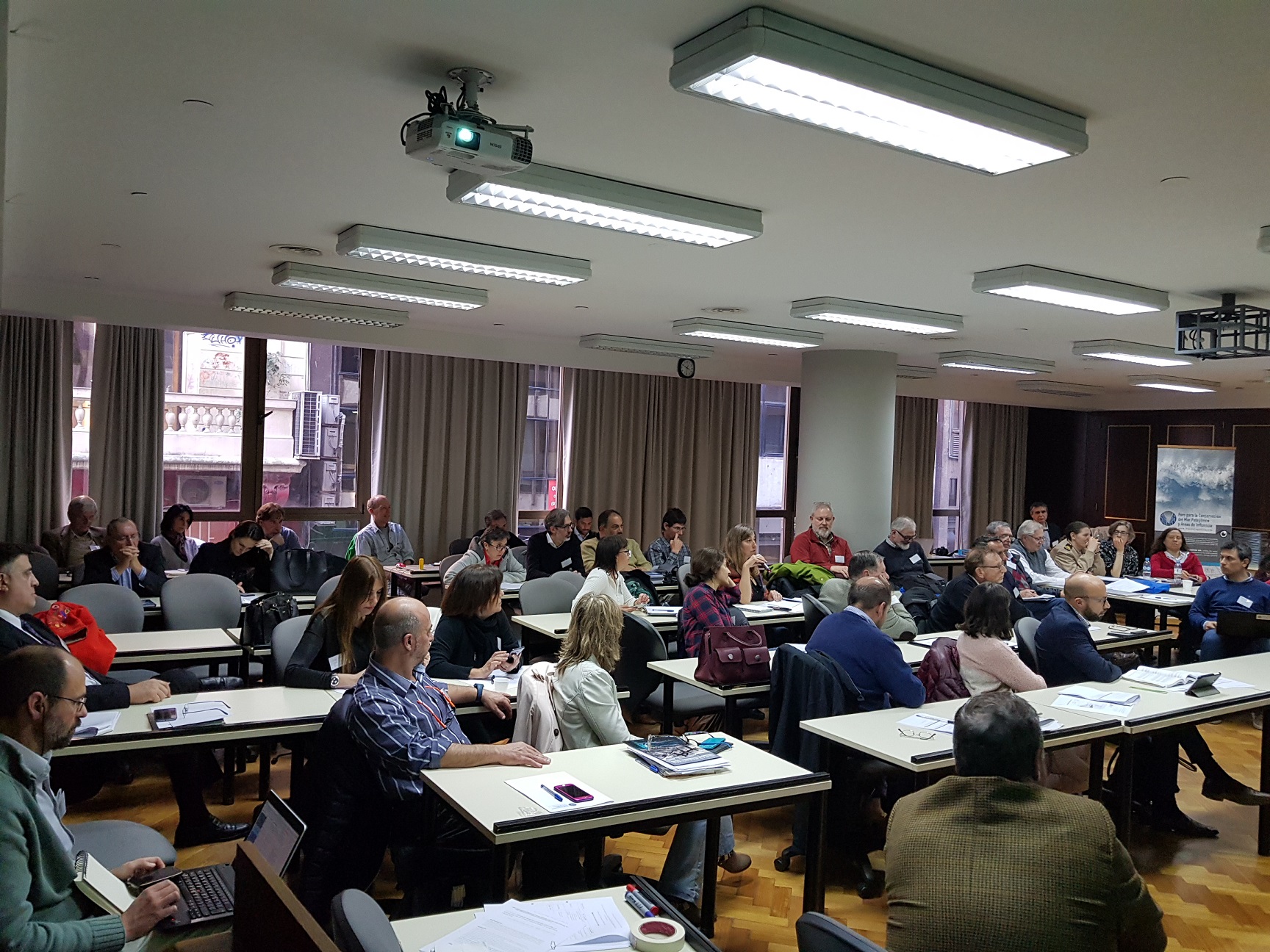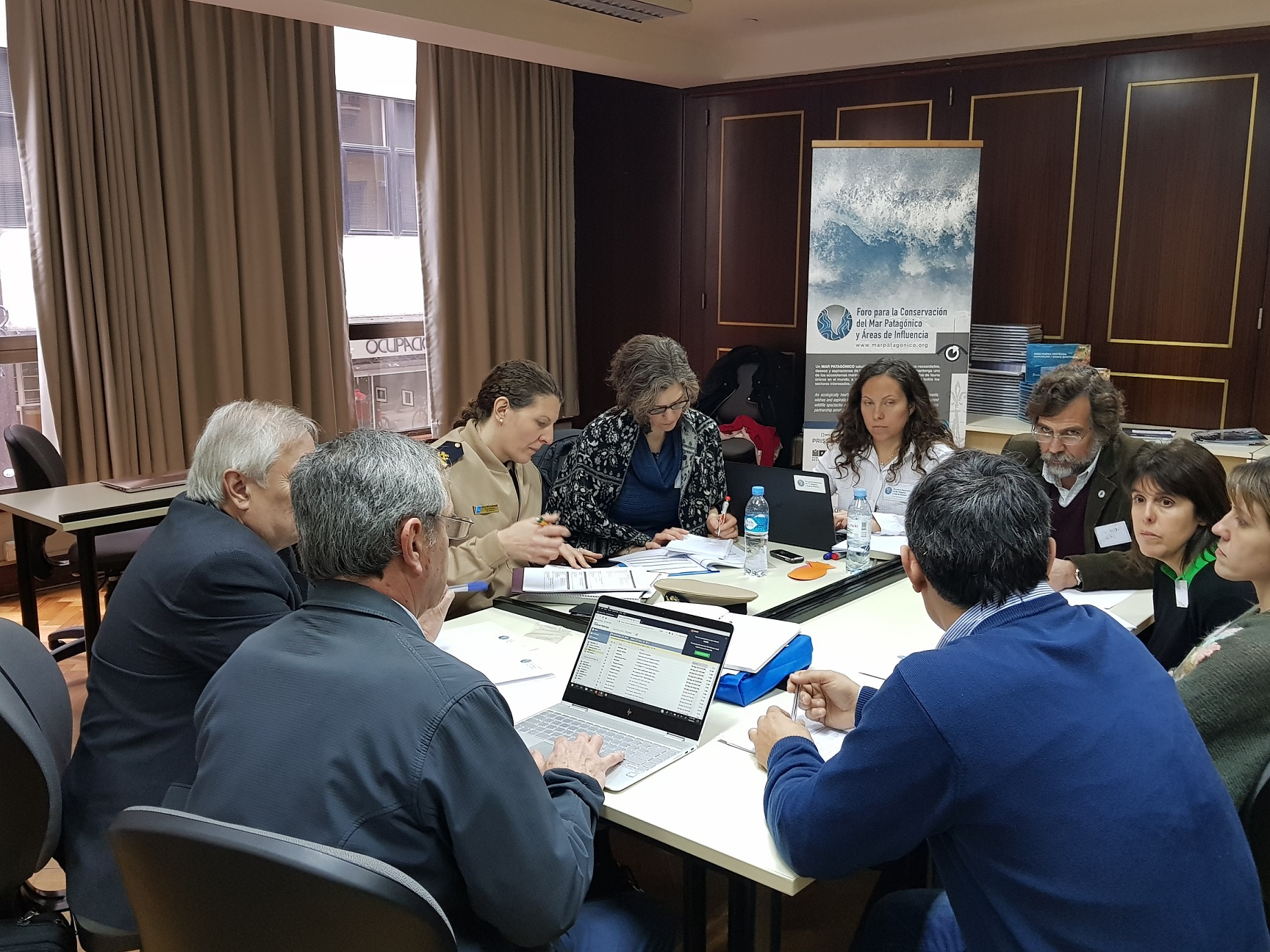Which are the potential threats associated with human activities at sea? Which are the main institutional strengthening challenges for the management of marine protected areas? The objective of the “Technical Workshop on the Implementation of National Marine Protected Areas in the Argentine Sea, challenges for the implementation of effective MPAs” was to begin outlining some answers to these and other questions.
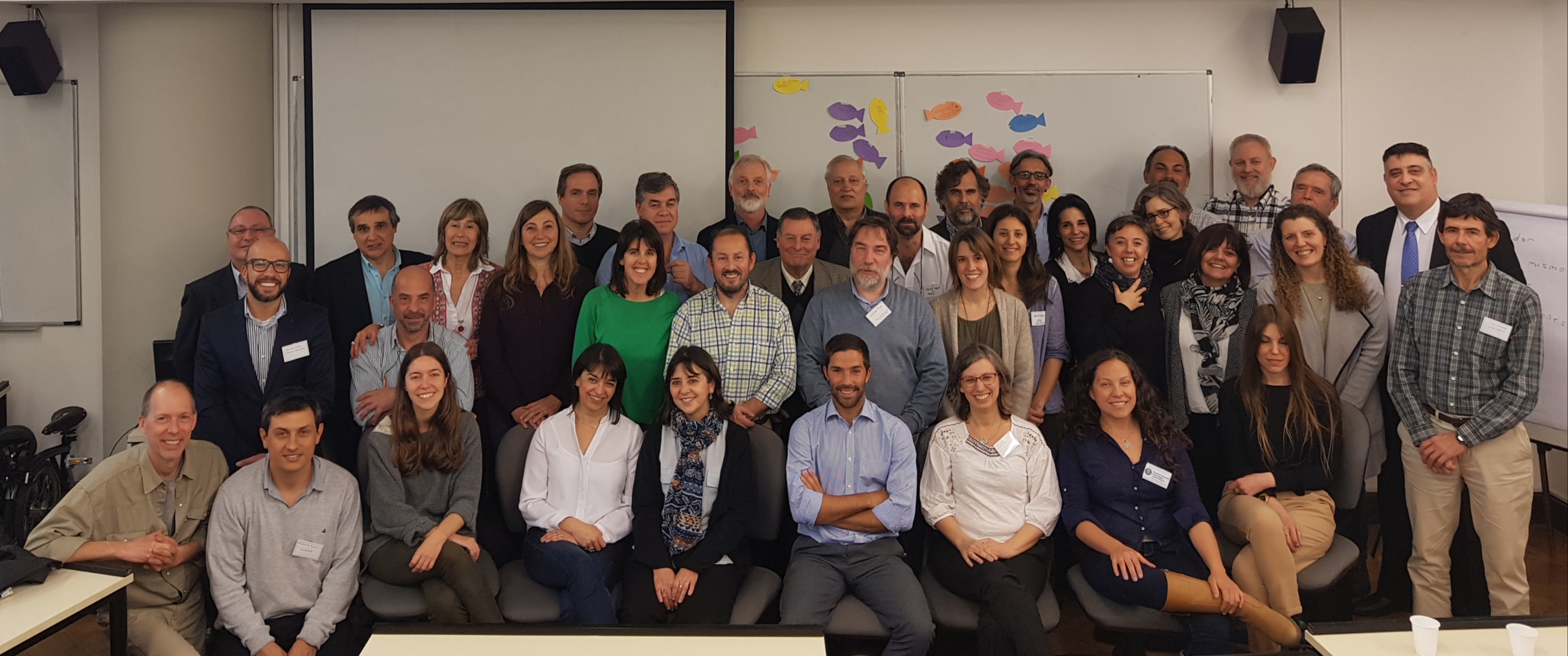
More than 40 experts represented around twenty organizations during the Workshop for the Implementation of Marine Protected Areas
In recent years, Argentina has made significant efforts and improvements to create and manage Marine Protected Areas (MPAs). However, less than 3% of its waters are among these areas, while many of those already created are not effective. Like most nations, our country has committed through international agreements to protect 10% of its sea by the year 2020. Therefore, it is important that these measures for the conservation of the marine ecosystem be implemented fast and effectively.
To understand the reasons and begin to outline possible solutions, civil society organizations in collaboration with the corresponding government agencies co-organized an exchange of ideas and information with more than 40 technicians and experts from more than twenty public bodies and research centers involved in marine conservation in national waters.
The implementation of the National System of Marine Protected Areas, created in 2014 by Law 27.037 is the main challenge of Argentina in order to preserve marine biodiversity, strengthen the land use regulations that integrate protection and management of marine resources, and favor the adaptation of ocean ecosystems to climate change. This is something new for the National Government, so it is necessary to develop the management capacity of the state and especially to support the National Parks Administration (APN), designated as the enforcement authority of MPAs in June, 2017.
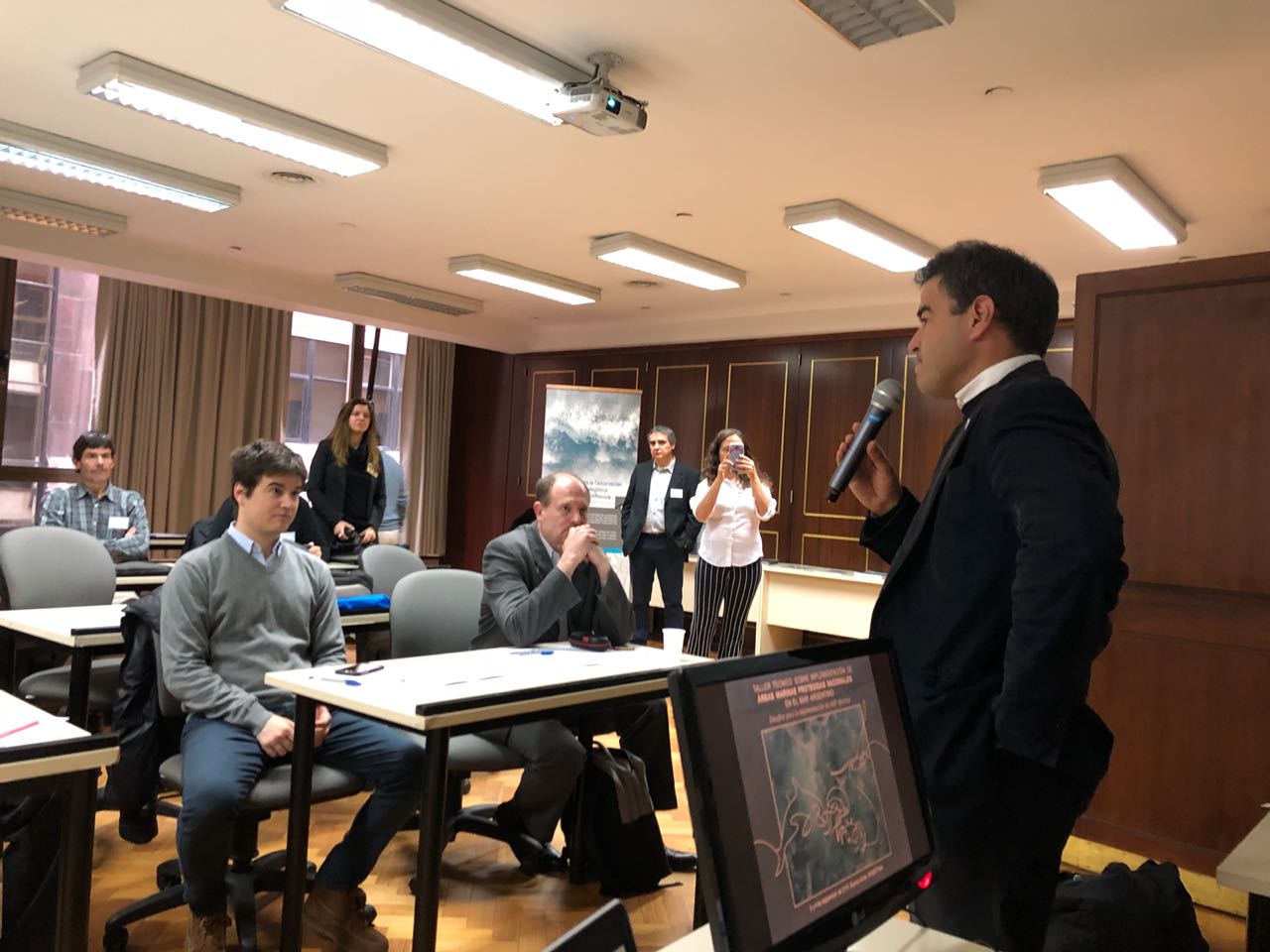
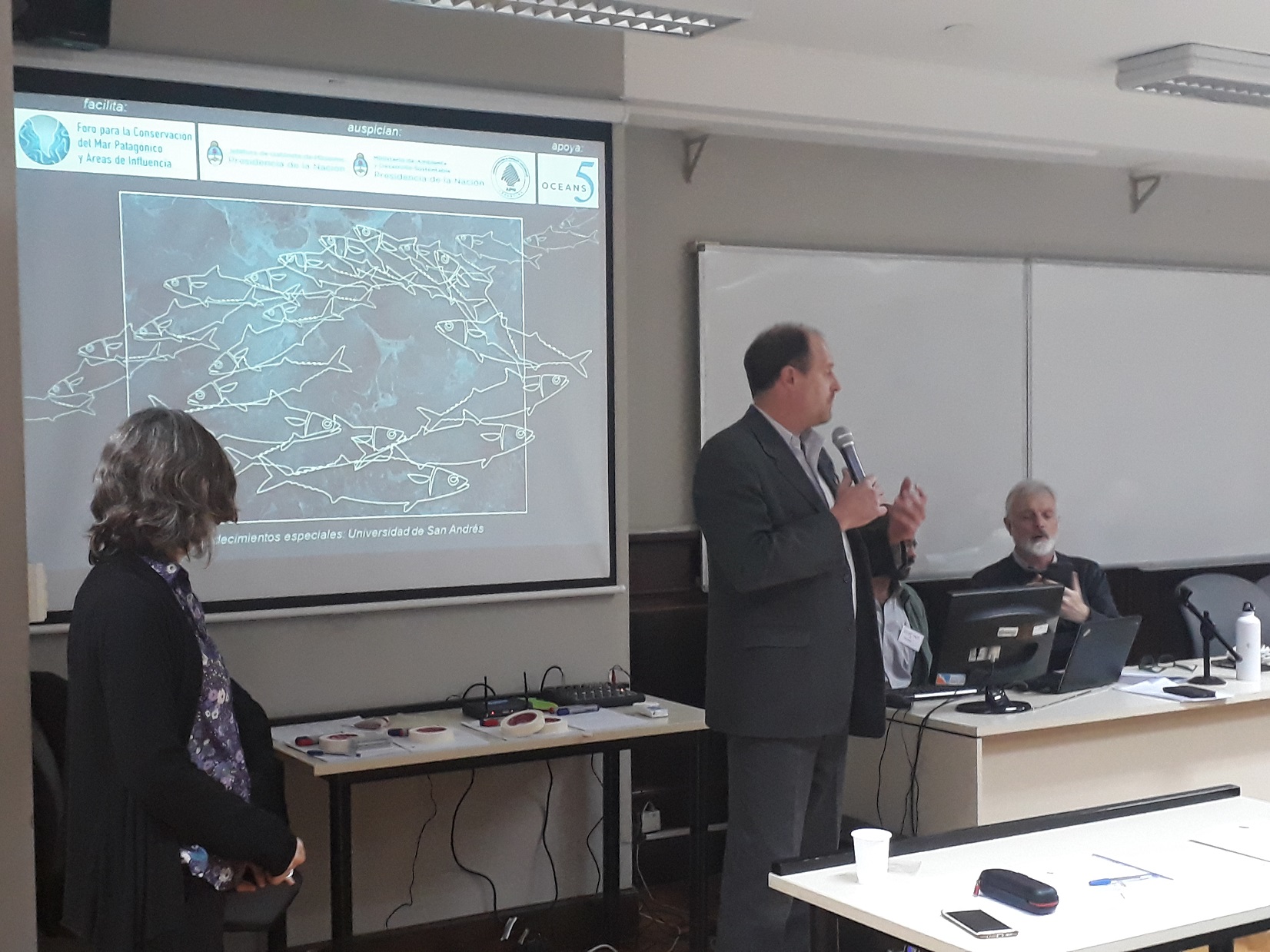
Emiliano Ezcurra, vice president of the National Parks Administration, and Diego Moreno, Secretary of Environmental Policy in Natural Resources of the National Ministry of Environment and Sustainable Development, during the opening of the workshop.
After two days of collaborative work and as a result of the workshop, the participants generated a list of contributions for decision making on the management of MPAs.
The main themes identified by the experts were:
- Development of institutional capacity. The main issues regarding this topic were the need to incorporate the necessary research associated with MPAs management to the National Scientific Priorities, to adjust the initiative of the School for the Management of MPAs to the NPA development plan and to make it official, and to have a team specialized in marine management within the NPA.
- Governance and institutional articulation. The participants recommended promoting a cultural change in relation to the management of marine resources, strengthening the inter-institutional relationships at the governmental level, promoting mechanisms for the participation of the private sector and applying integrative and strategic approaches.
- Regulatory framework. Emphasis was placed on incorporating the lessons learned from the management of the MPA Namuncurá – Burdwood Bank, and in revising the regulatory standards in order to define the participatory processes of MPAs management plans.
The meeting, which took place on September 3 and 4 at the Universidad de San Andrés in Buenos Aires, was facilitated by the Forum for the Conservation of the Patagonian Sea and Areas of Influence, and was sponsored by the Argentine Cabinet Chief, the Ministry of Environment and Sustainable Development and the National Parks Administration. Oceans5 contributed funds for the organization of the meeting. In addition to the aforementioned institutions, there were participants from Aves Argentinas, CADIC, Centre for Applied Research and Technology Transference in Marine Resources Almirante Storni, CLT, CONICET, IIMyC, INIDEP, Department of Maritime Interests of the Argentine Navy (Ministry of Defense), FAO Argentina, Argentine Wildlife Foundation, Ministry of Agribusiness, Ministry of Energy and Mining, Prefectura Naval Argentina, National University of Comahue, University of Mar del Plata, National University of Patagonia San Juan Bosco and WCS.
In the coming months, a report will be published and will be made available to the authorities in charge of managing the MPAs.
Draft Statement of the Argentine Senate S 3121/18: “The Technical Workshop on the Implementation of National Marine Protected Areas in the Argentine Sea was declared of interest by this Honorable Chamber” (senators Tapia and Costa)
